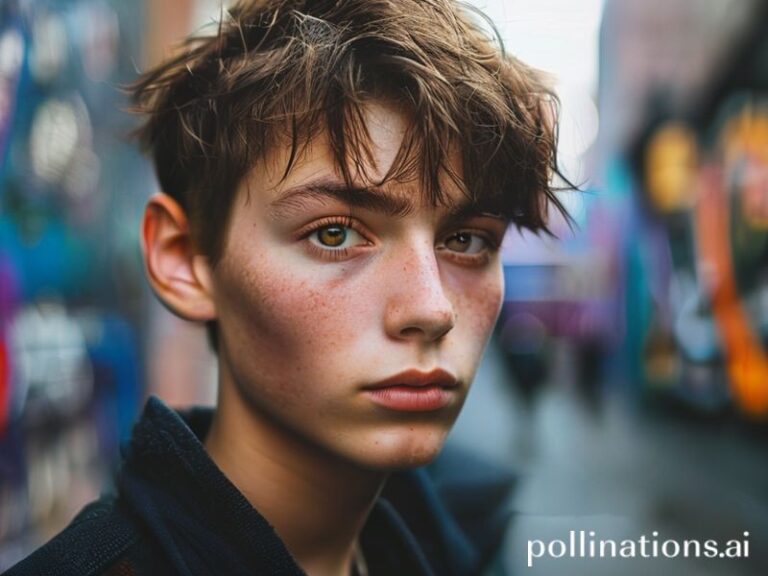From Lizzie McGuire to Landlord: How Hilary Duff Quietly Conquered the World
Hilary Duff and the Geopolitics of Girlhood: How a Teen Star Became a Global Soft-Power Asset
By the time the second Gulf War entered its third season—with better ratings but worse dialogue—Hilary Duff was already exporting an alternative narrative to 150 countries via the Disney Channel’s international feed. While coalition forces struggled to win hearts and minds with depleted-uranium charm offensives, Duff was deploying glossy jump-cuts, tooth-aching hooks, and the sort of faux-innocent charisma that disarms customs officials from Dubai to Detroit. The Pentagon spent billions; Disney merely handed out complimentary Lizzie McGuire backpacks. Guess whose message survived the baggage carousel?
The calculus is brutal and, frankly, hilarious. In 2003, the U.S. trade deficit in goods hit a record $496 billion, but the surplus in “aspirational tween iconography” was off the charts. Duff’s face—framed by that aggressively optimistic blonde helmet—adorned notebooks in Caracas, pencil cases in Cairo, and pirated DVDs in Shanghai night markets where the subtitles read like absurdist poetry (“Lizzie feels existential dread about algebra test”). Each time a thirteen-year-old in Jakarta doodled a sparkly heart around the initials H.D., American soft-power accountants scored another micro-victory against the Chinese Dream’s cheaper counterfeits.
Of course, no empire exports without blowback. Iranian state TV once denounced Lizzie McGuire as “a Zionist squirrel in lip gloss,” which remains the most creative piece of criticism ever leveled at the show. Meanwhile, French cultural bureaucrats—those eternal defenders of laicité and 35-hour workweeks—tried to ban Duff’s concert tour under the pretext of protecting l’exception culturelle. The ban lasted three days, roughly the shelf life of a Parisian baguette, collapsing once French teens realized they could simply cross the border to Geneva and scream “So Yesterday” within earshot of UN bureaucrats.
Duff herself has aged into a paradox worthy of a Milan Kundera subplot: a child star who became a mother, a wellness entrepreneur, and—most subversively—a landlord. Yes, the woman who once taught us how to survive middle-school cliques now rents out luxury condos in SoHo at rates that would make a Swiss banker blush. Somewhere, a former fan now pays $7,000 a month to live inside the fantasy she once sang about, which is either the most honest feedback loop capitalism has produced or proof that we are all unpaid extras in a sequel titled Lizzie McGuire: The Rent Is Too Damn High.
The global ripple effects continue. When Netflix rebooted the franchise, it cast a new Lizzie for the algorithmic age: biracial, anxious, fluent in trauma memes. The old Duff—now 36, still recognizable under tasteful fillers—was recast as the older sister who “has it all” yet still schedules meltdowns between Pilates and PTA meetings. International viewers from Lagos to Lima watch with the detached amusement of people who know the American dream is mostly shot on a backlot in Burbank. They recognize the set pieces: the airy kitchen islands, the guilt-free smoothies, the whispered therapy-speak that replaces actual plot. It’s comfort food for an era when real comfort is rationed by supply-chain shortages.
And so the wheel spins. Yesterday’s Mouseketeer becomes today’s lifestyle guru, tomorrow’s nostalgia IPO. In Kyiv, a teenager streams “Come Clean” while air-raid sirens harmonize in C minor. In São Paulo, a street artist stencils Duff’s 2004 face onto a shuttered storefront, adding the caption “We were all so yesterday.” The joke is on us, and we are in on it: a planet of ex-tweens trading memories like cigarettes in a post-historical prison yard, watching reruns of a simpler apocalypse.
Conclusion: Hilary Duff’s career is less a biography than a barometer. From the sanctions-scarred markets of Tehran to the crypto-fueled playgrounds of Singapore, her evolution tracks how the West packages innocence, sells it wholesale, then repackages the regret at a premium. If you want to measure the global temperature, skip the IPCC report; just note which version of Duff is trending. Today it’s the landlord-mom with a CBD line. Tomorrow, when the ice caps finish their encore, perhaps we’ll reboot her again—this time as an offshore wind-farm influencer, smiling bravely while the planet sings, slightly off-key, “This is what dreams are made of.”







